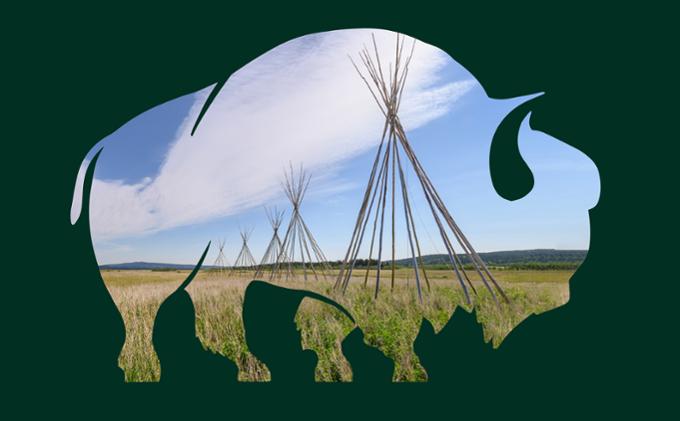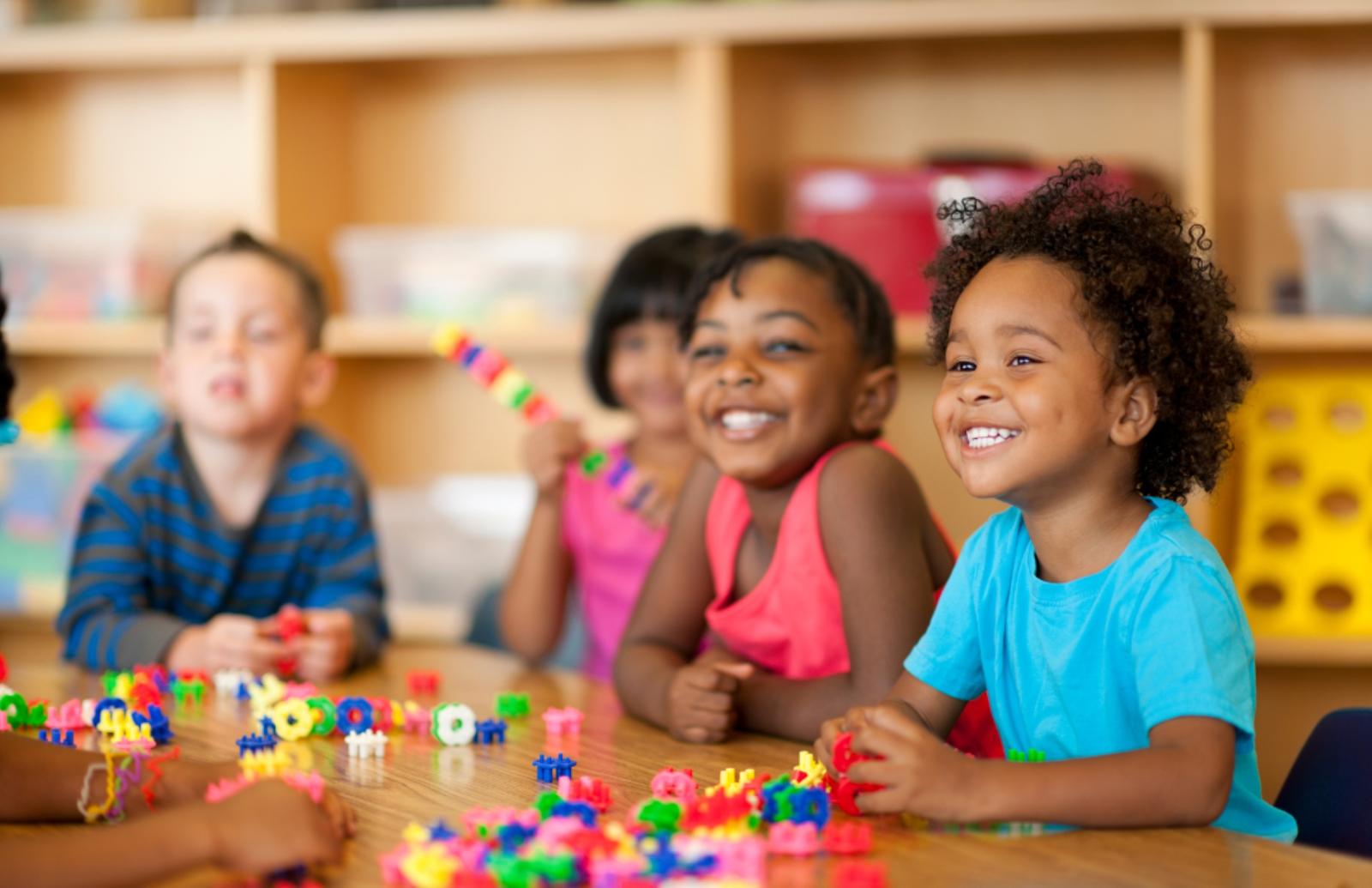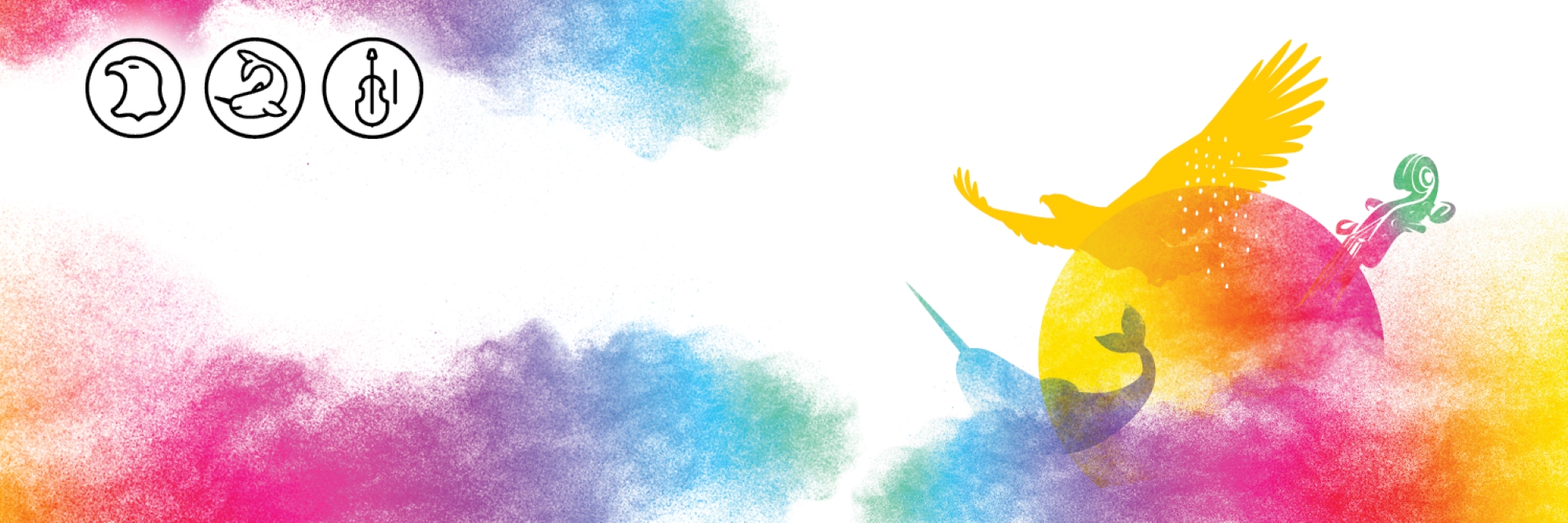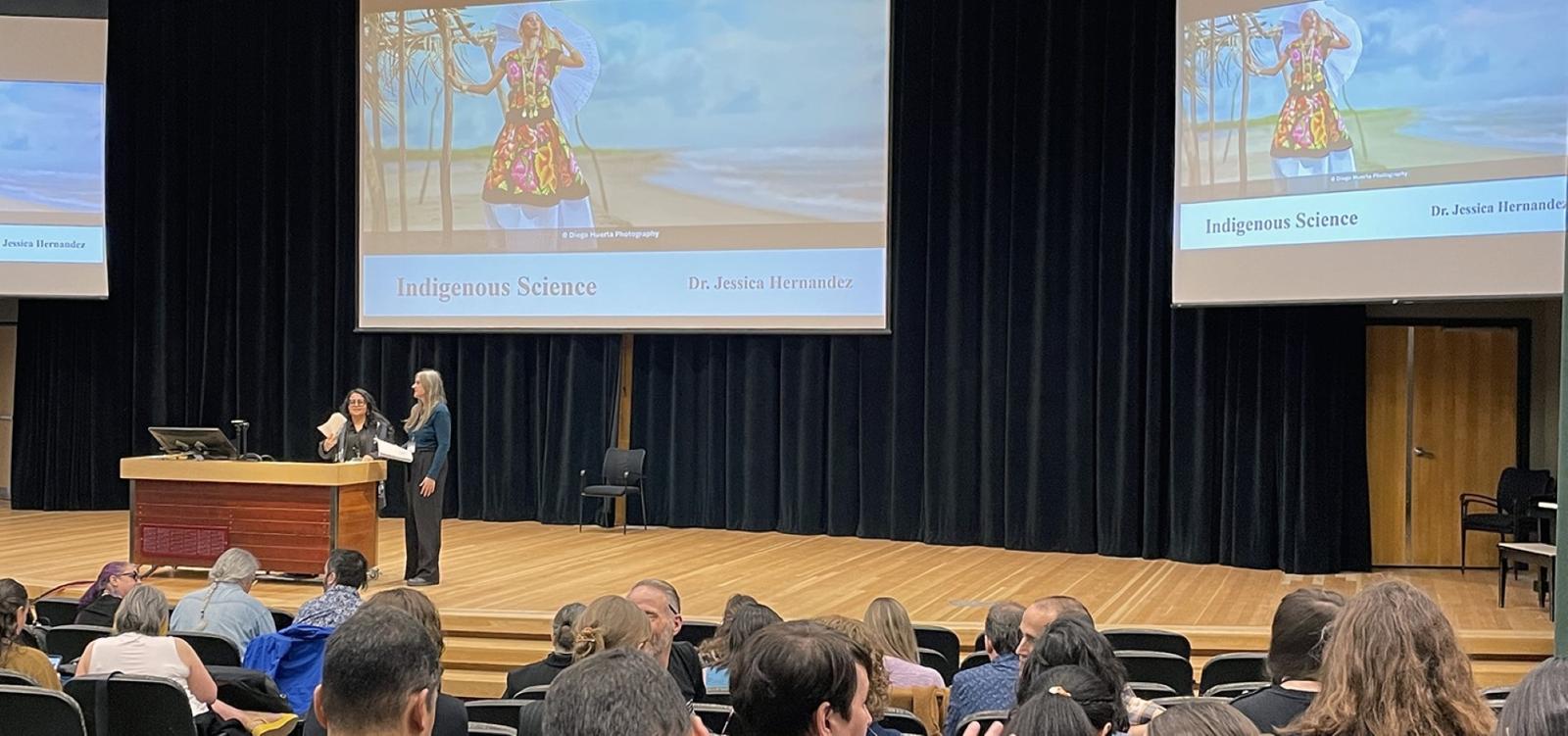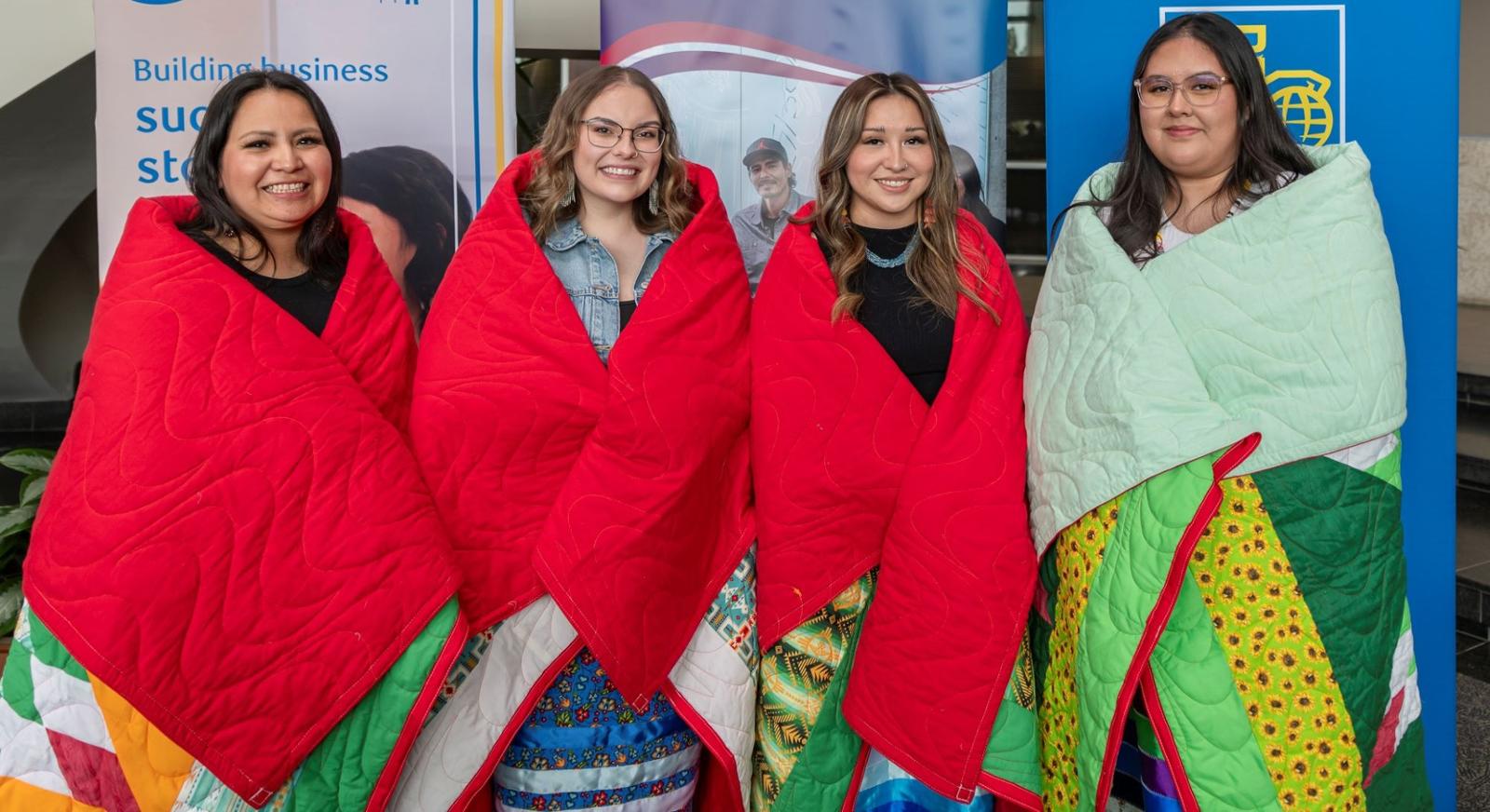In June 2020, the University of Regina released its 2022-2025 Strategic Plan, kahkiyaw kiwâhkômâkaninawak, All our Relations. One of the areas of focus in the strategic plan is Truth and Reconciliation, with one of the objectives being to incorporate Indigenous ways of knowing into the U of R’s teaching and research. By integrating Indigenous values, such as respect, reciprocity, and relationship building into the classroom, students and the larger community will have more respect and better understanding of Indigenous worldviews and ways of knowing.
We are all Treaty people, and as Treaty people we share in the responsibilities of ending racism, transforming education, and creating safe and culturally relevant spaces for Indigenous knowledge systems and Indigenous peoples. — Josephine Forest, Educational Developer (Indigenization)
Truth and Putting Things Right
Earlier this week the Office of Indigenous Engagement launched the U of R’s Indigenous Engagement Strategic Plan Tapwewin kwayaskwastâsowin, Truth and Putting Things Right. One of the themes in the plan is Learning and Teaching, with an objective to incorporate Indigenous ways of knowing into teaching and research.
While kahkiyaw kiwâhkômâkaninawak, All our Relations will continue to serve as the guidepost for all work and activities taken at the University, the Indigenous Engagement Strategic Plan aligns with the overall strategic plan and provides the necessary steps and actions to support accomplishing the goals and objectives identified in the Truth and Reconciliation area of focus.
Transforming the Academy
Josephine Forest is an Educational Developer (Indigenization) with the U of R’s Centre for Teaching and Learning and provides Indigenous support to faculty members and units to help them decolonize their curriculum, pedagogy, and assessment and instructional practices. She believes that a big part of Indigenizing and decolonizing is everyone working together as a teaching community and learning community to ensure that we are all upholding the Calls to Action of the Truth and Reconciliation Commission of Canada and undoing the harms caused by colonization.
“We are all Treaty people, and as Treaty people we share in the responsibilities of ending racism, transforming education, and creating safe and culturally relevant spaces for Indigenous knowledge systems and Indigenous peoples,” says Forest. “There is still a great undoing and recognition of colonial harms. That includes education and the harms that were done through education to Indigenous peoples.”
Forest also says that as Indigenous populations in Canada are growing, they will represent more and more of the U of R’s student body. It’s essential that they are represented and feel included in the curriculum that is being taught.
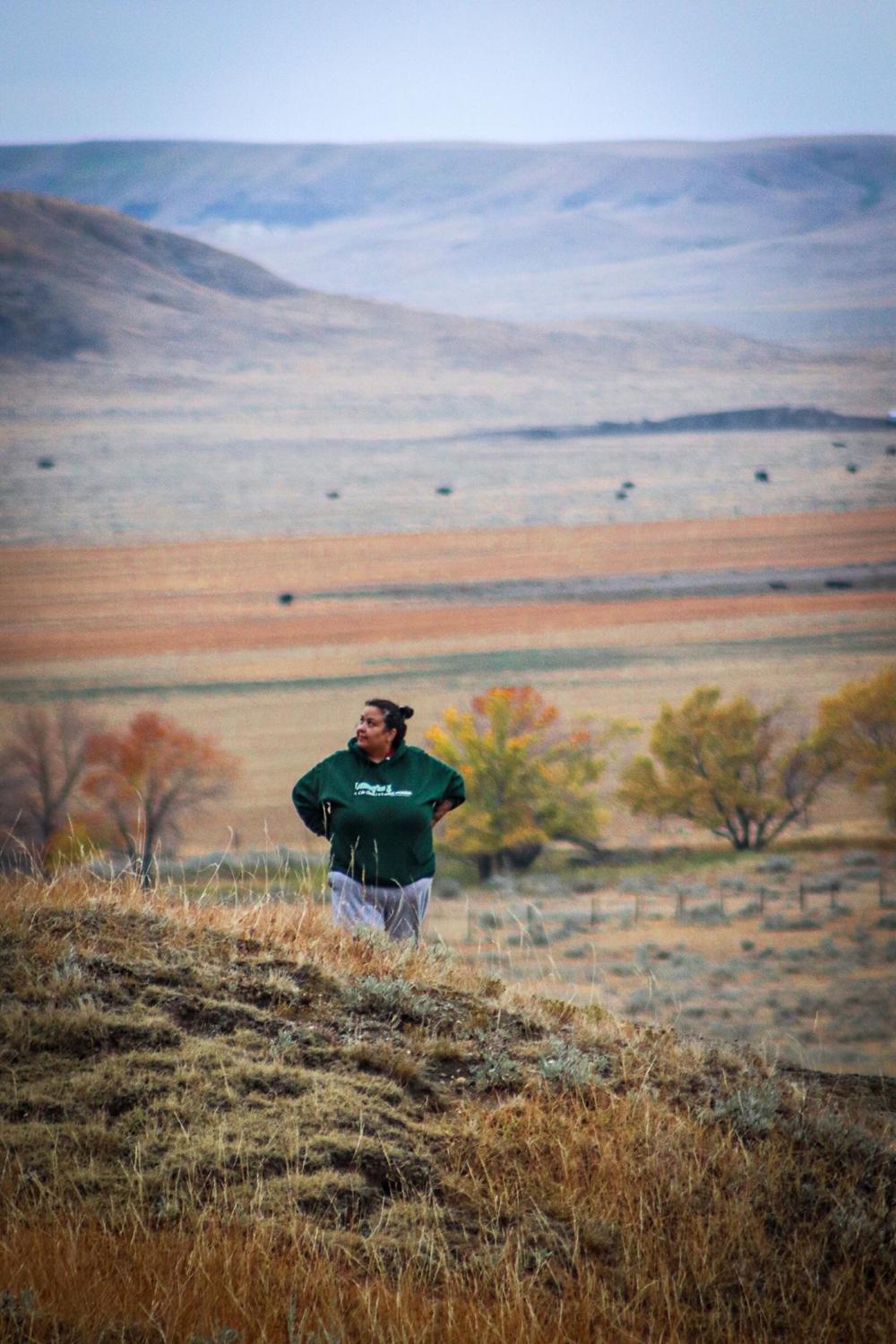
Working one-on-one and building shared, reciprocal relationships with faculties and units has been incredibly important to Forest as she works with them on Indigenizing their curriculum.
“I look at the transforming of the academy from a holistic point of view. Each person has to first confront their own biases and beliefs that have been harmful to Indigenous peoples,” says Forest. “This includes recognizing the harms of colonization that have been done through education and those harms that still create barriers to Indigenization. That is essential.”
When she works with units and faculties, Forest asks them to look closely at what they are teaching and how they are teaching, and to identify is there is anything that may still create barriers for Indigenous peoples. She thinks that the best way to incorporate Indigenous ways of knowing is to have an open heart.
“We are strengthened as an institute of higher learning when we are vulnerable and dedicate ourselves to meaningful change,” she says.
Bringing Indigenous voices into the classroom
Dr. Brenda Anderson PhD’11 is an Associate Professor (Luther College) in the Department of Gender, Religion and Critical Studies and she has been facilitating (leading) the Indigenization and decolonization work being done at Luther College. As a faculty member, she teaches religious studies and women and gender studies classes, which she approaches from a lived experience perspective. She incorporates stories and narratives into many of her classes.
“This approach lends itself to Indigenous ways of knowing because those are based on relationships and developing those skills by listening and doing things communally,” says Dr. Anderson. “Indigenous research methodologies, Indigenous policy making, and Indigenous storytelling are all dependent upon who is doing the talking and who is doing the listening.”
Discover the Indigenous Engagement Strategic Plan.
She also teaches a class on missing and murdered Indigenous women (global femicide) and she brings Indigenous voices into the class through readings by Indigenous women, films she shares with her students, and bringing in speakers.
“As a non-Indigenous person teaching this class, I am never going to speak on behalf of Indigenous peoples,” says Dr. Anderson. “In many ways, teaching is facilitating and in all of my classes I have speakers come in and give their lived experience perspective. Storytelling is how we invite people into our lives, and I believe that witnessing and taking action is a foundational piece to being an ally.”
Banner photo credit: Indigenous Engagement Strategic Plan cover design by Castlemain Group.
About the University of Regina
Set in the heart of the Canadian prairies we are a comprehensive, mid-sized university where the opportunities are as limitless as the horizon. Our campuses are on Treaty 4 and 6 - the territories of the nêhiyawak, Anihšināpēk, Dakota, Lakota, and Nakoda peoples, and the homeland of the Michif/Métis nation. It is our responsibility to strengthen relationships with Indigenous communities to build a more inclusive future for all. Our three federated colleges, 10 faculties, 25 academic departments, and 18 research centres foster innovative research with practical and theoretical applications. We are committed to cultivating the potential of our 16,000 students and supporting their health and well-being. We take learning beyond the classroom through work and volunteer experiences to develop career-ready graduates.
Let’s go far, together.
